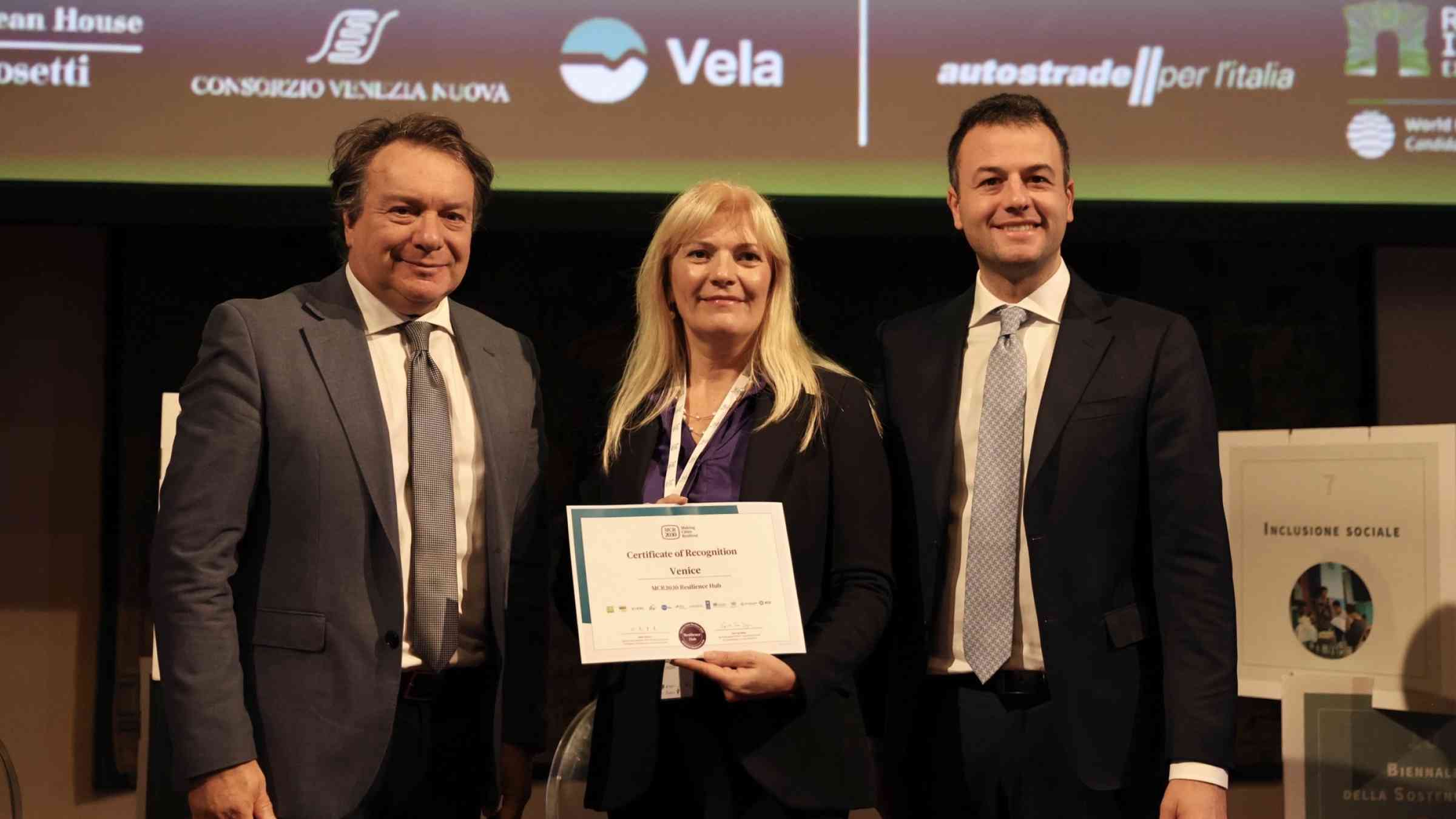MCR2030 welcomes Venice as the new Resilience Hub in Europe

The city of Venice is recognized as a Resilience Hub for its leadership in cultural heritage protection in DRR
The Making Cities Resilient 2030 (MCR2030) global partnership has recognized Venice, Italy, as a Resilience Hub for its dedication to raising global awareness of Cultural Heritage Protection in Disaster Risk Reduction strategies.
Ms. Paola Albrito, Director of the United Nations Office for Disaster Risk Reduction (UNDRR), emphasized that there are no ‘natural disasters,’ only natural events that become disasters when we are inadequately prepared. She pointed to the experience with the MOSE system as a demonstration of how innovation and technology can be integrated into early warning systems, ensuring their effectiveness and adaptability. Ms. Albrito commended the city's commitment to preserving its unique cultural heritage while adapting to climate change and its proactive role in disaster risk reduction.
The MCR2030 Resilience Hub certificate ceremony took place at the Sustainability Biennial (Biennale della sostenibilità 2023) in Venice, Italy, on 8 November 2023, organized by the Venice World Capital of Sustainability Foundation. The event provided opportunities to exchange best practices in urban resilience and to address challenges among stakeholders. Venice, having been a role model city in the previous MCR campaign from 2010 to 2020, continues to maintain a strong partnership with the MCR2030 initiative.
"It is a source of pride for the city of Venice to be recognized by the United Nations as an international Resilience Hub for the strategies and policies implemented for the reduction of environmental risks. A reward for the many efforts and continuous commitment that have allowed our city, over the years, to increasingly become a model for coastal areas worldwide,” declare Municipal Assessors Mr. Simone Venturini and Mr. Massimiliano De Martin.
"We want to contribute to writing a new narrative on environmental issues and the concept of sustainability by taking a lead in a different, proactive approach. The concept of sustainability is closely linked to that of economic growth, trusting in technology and progress. The MOSE model, in this sense, constitutes an important model to replicate on a national and international scale, demonstrating how 'sustainability' also means qualified jobs and innovative investments. This paradigm shift, of which we are promoters, has allowed Venice to improve its global status. There is still much work to be done, but we will continue to commit ourselves in this direction."
The MOSE system, which the city has been operating since October 2020, serves as an exemplary model of how the city supports urban resilience against frequent natural hazards such as floods, using innovative technology to integrate early warning systems. With their extensive experience in protecting cultural heritage and adapting to climate change, Venice is expected to take an active role in leading the development of urban resilience and sharing knowledge and expertise in the region.
* The MOSE system: The MOSE system is a mobile barrier designed to temporarily separate the lagoon from the sea during high tide events, ensuring the defense of Venice and the inhabited lagoon from flooding.

